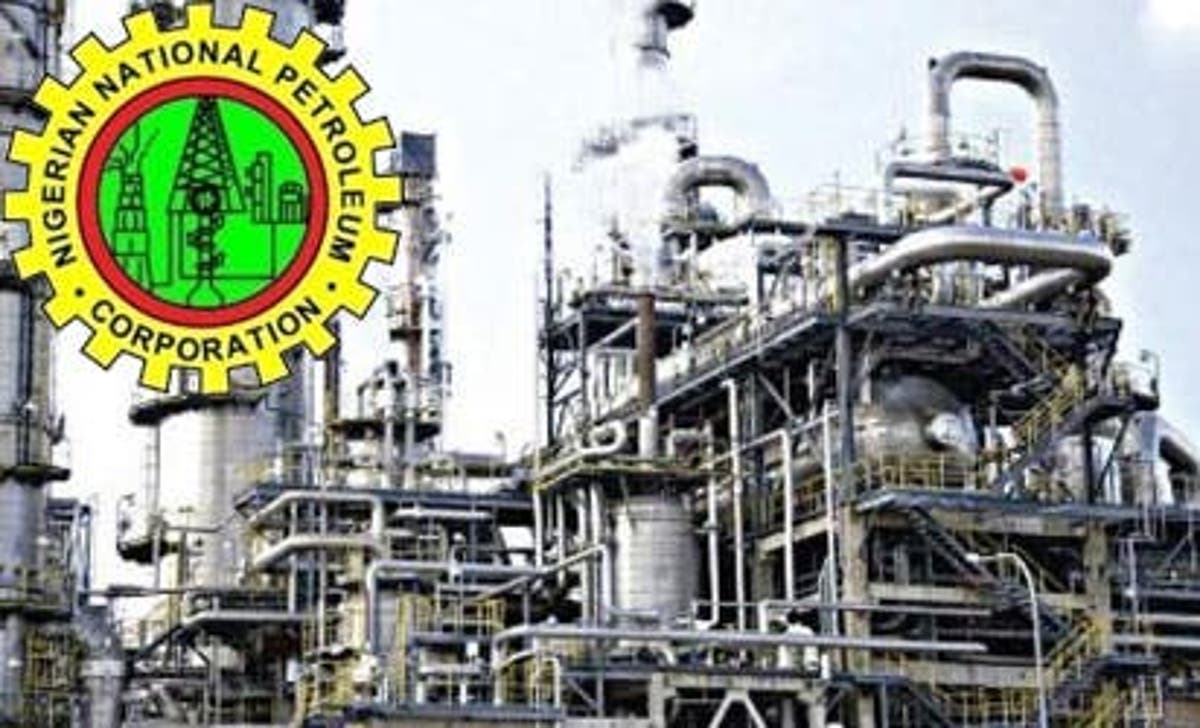Seven subsidiaries and business units of the Nigerian National Petroleum Corporation (NNPC) contributed a cumulative N56.177 billion to the national oil company’s total losses in April this year, latest financial and operations data from the corporation have indicated.
A review of the information released by the NNPC showed that the seven subsidiaries and units that posted losses included the NNPC Ventures, the Integrated Data Services Limited (IDSL), the Corporate Headquarters (CHQ), and the NNPC Shipping.
As expected, the Kaduna Refinery and Petrochemical Company (KRPC), the Port Harcourt Refining Company (PHRC) as well as Warri Refining and Petrochemical Company (WRPC) also recorded various losses during the month under consideration.
A breakdown of the losses for the month indicated that the headquarters had the largest share of N30.448 billion with expenses gulping N30.473 billion, while it generated a paltry sum of N25 million.
Whereas the three refineries, namely KPRC, PHRC and WRPC, which have not been operational for years, recorded expenses of N6.569 billion, N6.369 billion and N4.829 respectively, just as the shipping arm of the NNPC business recorded a deficit of N1.123 billion during the month.
In the same vein, NNPC ventures posted a loss of N4.684 billion while IDSL recorded N2.120 billion losses in the month under review.
NNPC Ventures is responsible for consolidating existing and new businesses across diverse industries for the NNPC with a mandate to incubate new investments as well as nurture the subsidiaries into viable long-term businesses that provide “best-in-class” services.
The IDSL is a subsidiary of the NNPC established in 1988 that provides hydrocarbon exploration services in the local and international oil and gas industry, including the provision of geophysical, geological, reservoir engineering and data storage and management services.
Similarly, NNPC Shipping participates in the marine transportation of crude oil and petroleum products along the deep sea, coastal and inland waterways; including ship management and marine supplies.
However, the NNPC report showed that the Nigerian Petroleum Development Company (NPDC), National Engineering and Technical Company Limited (NETCO), Nigerian Gas Company (NGC) as well as its retail unit and Duke Oil posted gains for the month under review.
Although the deficit recorded by the NNPC corporate headquarters remained unexplained, it was an increase on the loss by the cost centre, which was N21.822 in the previous month of March.
As the main operational centre for the country’s oil operations, NNPC headquarters generated no real revenue. It was also not clear if the corporation’s staff costs, administrative expenses, or support function it renders to its subsidiaries are incorporated into the headquarters’ overheads, as it usually does not give such breakdowns in its reports.
But the report noted that NNPC Gas and Power Investment Company (GPIC) set up in 2016 to promote gas utilisation, as a cleaner fuel is currently “consolidated and reported,” under the corporate headquarters operations.
The Group Managing Director of the corporation, Mallam Mele Kyari, had repeatedly assured that it would declare dividends to its shareholders, namely the federal, state and local governments by the year-end.
Meanwhile, crude oil closed last week with the longest losing streak since 2019, with West Texas Intermediate (WTI) futures ending the weekend’s session 2.2 per cent lower, tumbling for a seventh day and extending the week’s decline to 8.9 per cent.
The losses recorded during the week were on the back of the COVID-19 pandemic which remains a threat to energy demand, especially across Asia, with key importer China restricting mobility to combat a recent outbreak.
The falling price of the commodity may also force the Organisation of Petroleum Exporting Countries (OPEC) and its allies to consider halting their next planned production increase during its coming September 1 meeting.
The pandemic continues to disrupt plans to restart economic activities, impeding mobility and demand for fuels from Australia, which has extended Sydney’s two-month long lockdown to the United States, where more companies have announced plans to keep workers at home as the virus spreads.
Nigeria’s oil benchmark, Brent crude has also continued its downslide as it fell below $65 a barrel for the first time since May.
WTI for September delivery fell $1.37 on the last day of trading, to settle at US$62.32 a barrel as Brent for October settlement declined US$1.27 to end the session at $65.18 a barrel, down for a seventh day, its longest run of losses since February 2018.

Leave a Reply